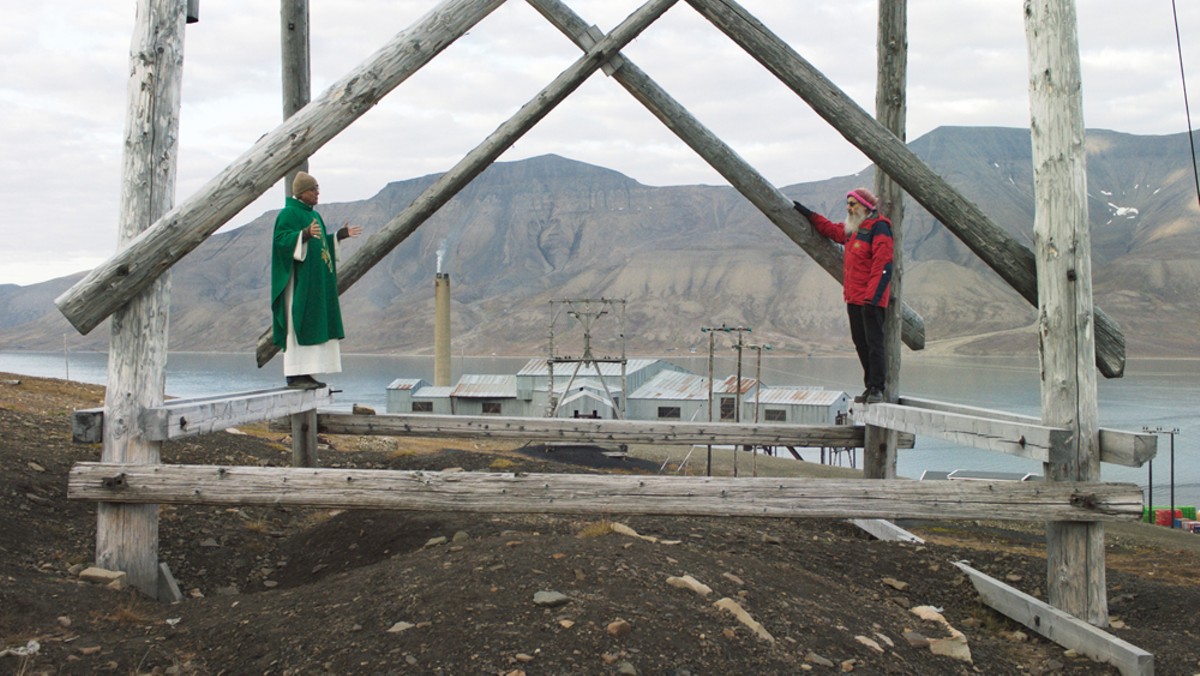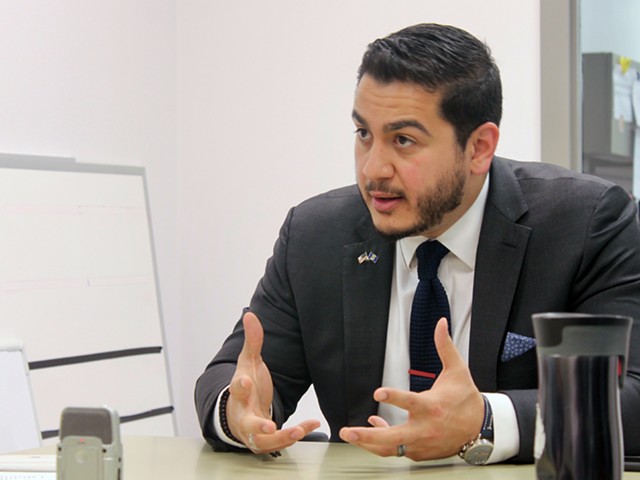Wild Relatives, which plays this Thursday at the Arab American Museum, is largely a study in counterpoints. Tugging at a fraying, ropelike thread that stretches from Svalbard to Aleppo with some detours into Lebanon, Jumana Manna's documentary explores the collective, cross-cultural efforts to preserve seed varieties grown in Syria amid the threat posed by their civil war — a threat, too, to the already-faint hope for a less-industrialized, more locally adaptable form of agriculture.
The movement of the seeds is one of the few proper incidents depicted. Working off a premise that sounds like a plant-based Children of Men, Manna dwells on quotidian contrasts instead of dramatizing heavily or pontificating over her 66 minutes. Moving fluidly between a web of intersecting themes and counterpoints, she features: the rifts and exchanges between the rural and (implied) urban; on the work that men and women might respectively do (even on the same broad project); on Norwegian stability and Syrian unrest; on the local seed bank's vacuum-sealed preservation methods; and a local farmer's own storage space: a modest pantry of brimming paper bags. These wouldn't mean much if her camera didn't remark on commonalities, too — like the similarities between the country's emptied landscapes, or an atmosphere that unites both regions — wherein residents of each dream not far ahead, contemplating the innumerable threatening outcomes that will inevitably arrive.
This last part — the movie's and characters' placid approach to something like apocalypse — seems to be the key to the movie's thematic air. With director of photography Marte Vold shooting often in calm, symmetrical compositions, the camera moves between journalistic interview, social realism, and landscape photography, cutting wide-angle vistas of farms and mountains together in glacial montages that allow the eye to settle (and the mind to meditate) on shifted-on-cut horizon lines. Fair enough, considering this is a movie about monitoring subtle, barely visible, and sometimes geologic changes and preparing for the future. The specters of war, global inequality, climate change, and displacement of peoples all hover quite close to the film's proceedings — but Manna's reserve in elaborating on them scans as a fruitful statement of its own. (Could she — or anyone — have found a tidier metaphor for the refugee crisis than rescuing seeds? And sending them to well-off parts of Europe?)
By shooting on a topic with such freighted symbolic potential while remarking so scarcely on it, Manna dodges crassness, scaremongering, and overt bleeding-heart activism all at once (all of which would be emotionally justified), suggesting questions in a subtle manner that — all too rare in the kinds of documentaries we tend to see — actually respects her viewer. The movie's calm acceptance and recording of careful deliberations — of farmers, lab workers, families, and traveling advocates (and, as is inherent to documentary, of Manna's own work) — suggests an acceptance of a future that just a wealthy few want and which the rest of us must be prepared to stoically survive.
Amid this broader canvas, though, there are elements Manna's suggestive mode alludes to, some elements of social realism her style and running time account for but leave little room to intimately explore. In as editing-driven a form as documentary, it's usually safe to assume no inclusion or cut is accidental, far less safe to guess what footage has been shot or lost. In Relatives' case, it's hard not to wish in watching that we didn't get to spend more time with certain people, like the woman who shyly mentions she'd rather be tending a farm than with family at home — or with the small-scale organic seed banker mentioned above. As welcome as Manna's approach might be — of exploring broad, geographic connections, implying more often than she states — and as clear as her film makes it that the large shifts she documents concretely affect so many lives already, her attention to her subjects can feel aloof and too quick in shifting.
This tension is inherent in the uncommonly contemplative mode Manna works in and the broad story she's weaving. Her observant eye for social realism, her calm in the face of apocalypse, and her broad grasp of our world's politics make clear that empathy's not lacking in her disposition; Wild Relatives is motivated, plainly, by both a desire to question, by a sense of concern, by an attention to the mysteries that arise in the film's thematic intersections. Rich as they are, Manna's intersecting threads are less stirring for their global reach than the ways they tug at the individuals we meet, who are struggling, quietly, to ensure their way of living can survive. Those people are documented and preserved here, those tensions technically accounted for; all the same, it would be nice to know a little better the people we meet onscreen.
Wild Relatives has a screening and talkback starting at 7 p.m. on Thursday, April 18 at the Annex at the Arab American National Museum, 13624 Michigan Ave., Dearborn; 313-582-2266; arabamericanmuseum.org. Tickets are $7 AANM Members, $10 general public.
WILD RELATIVES - Trailer from KLE on Vimeo.
Get our top picks for the best events in Detroit every Thursday morning. Sign up for our events newsletter.






